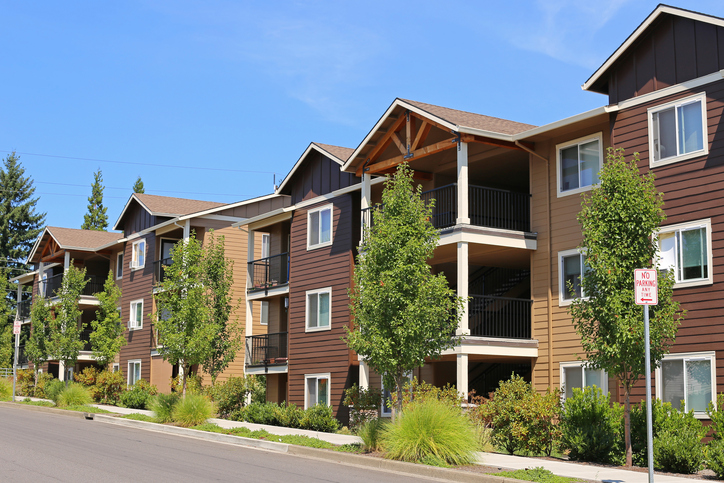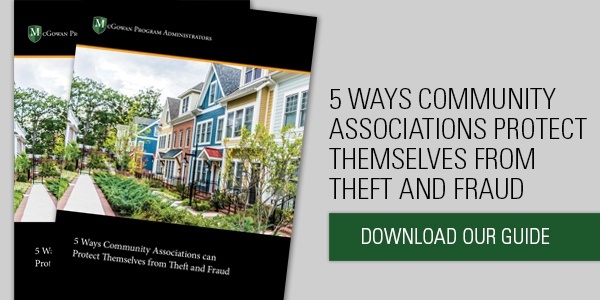Community associations and HOAs have a lot on their plate: lawns to mow, fees to collect, feuds to tamp down. If they succeed, property values climb and people feel safe. If they fail, property values falter and neighborhood bonds fray.
The health of a community association often depends on three critical factors: governing documents, neighborhood strength and safety, and sound risk management.
High-quality governing documents
An HOA is a legal entity that has elements of a government body and a volunteer organization — making it a sort of hybrid between the Town Council and the Red Cross. The unique characteristics of an HOA require governing documents that provide a sound framework for protecting property values and nurturing the health of the community.
These are the most critical governing documents for most HOAs:
- Articles of Incorporation. These articles define the name of the housing development, its owners, its purpose, and other foundational aspects of the HOA.
- Declaration of Covenants, Conditions, and Restrictions (CC&R). The CC&R declaration spells out precisely what homeowners can and can’t do, like parking an RV in the driveway or hanging laundry outside. It also designates financial responsibilities and defines penalties for noncompliance.
- Bylaws. HOAs need standards for conducting meetings, appointing officers, and voting in board members. The bylaws typically cover these requirements.
- Rules and Regulations. Times and tastes change. New technologies and fads create fresh points of contention among neighbors. While the CC&R is more akin to a constitution, rules and regulations are more like legislation that can be updated as needed.
With founding documents, high quality lies in clarity, purpose, and guidance. You don’t want rules to be unreasonably strict or aggravatingly vague. You need clear delineations of authority and explicit avenues to resolve disputes.
If your HOA seems perpetually snared in disputes that end up in court, your founding documents may be the culprits.
Well-maintained public areas with appropriate safety protocols
Effective governance — strong leadership and sound finances — should provide the resources to keep your community clean, safe, and welcoming.
You have to make sure you’re covering the basics:
- Snow removal in wintery climates.
- Landscaping year-round, including tree trimming and leaf removal.
- Removal of insect and animal pests.
- Safety standards for swimming pools and playgrounds.
- Reservation protocols for clubhouses and meeting rooms.
- Maintenance of equipment in gyms and aerobics rooms.
- Systematic property inspections to catch problems early before people get hurt.
- Security systems to discourage crime and make it easy to report incidents.
Neglecting these factors can lead to protracted disputes that strain the patience and resources of the volunteers who lead your HOA.
Some community associations opt to hire outside managers to oversee these kinds of details. That may solve specific logistical challenges like getting landscapers paid and parking lots repaved, but it cannot fix a lack of leadership. The HOA board still needs to hold its professional managers accountable, ensuring they protect residents, reduce the likelihood of accidents, and keep everybody safe.
The right insurance
Any gathering of people is an environment prone to accidents, negligence, and willful misconduct. These risks compound in a neighborhood, which represents the collective wealth and wellbeing of its residents.
Thus, sound risk management requires at least three kinds of insurance coverage specific to HOAs:
- Crime: HOAs see their share of losses to embezzlement, theft of community assets, robberies, and other offenses.
- Directors and officers: Leaders’ negligence or accidents may land them in court, requiring reimbursement of legal fees and other protections.
- Cyber liability and data breach: HOAs store sensitive personal data that attracts cybercriminals. Security breaches often lead to expensive lawsuits that require insurance to reduce costs.
Each HOA requires insurance coverage specific to its community’s size, locale, property values, and risk profile. At McGowan Program Administrators, we can match HOAs with Umbrella or Package coverage, or expand your coverage with specialized policies.
For more on HOA risk management, download our free eBook on protecting your community from fraud and theft.



